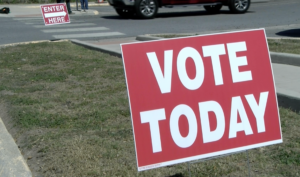UNITED STATES – Earlier this month, President Trump signed a proclamation to restore 25% tariffs for both steel and aluminum in hopes to end what he calls “unfair trade practices.”
He also intends to eliminate exemption for countries including Argentina, Australia, Brazil, Mexico and Japan.
According to a White House news release, because of the exemption of various countries on the steel tariff, China was able to receive an excess amount of steel and aluminum.
Trump also paused a 25% tariff increase on Mexican and Canadian goods in exchange for Mexico sending troops from the National Guard to the Mexican border.
Canada also sent extra enforcements toward the U.S.- Canada border for safety and to maintain the “Fentanyl Crisis”.
Although trades and tariffs are normal between international trade, Tyler Coleman a UTRGV political science lecturer I, said the main motive to initiate an increase on tariffs is unclear however, it is considered as a policy tactic.
“There is a long running theory in international relations that, you know, sort of suggests that countries of course that trade with one another, enjoy more economic prosperity as a result of this trade,” Coleman said.
He also said that because of trade, countries get along but if there are more tariffs being imposed and restrictions on trades, that action could affect relations overseas.
The pause for the Mexican and Canadian tariffs will be over within the next 30 days.
This is a developing story waiting for the decision after the pause.





